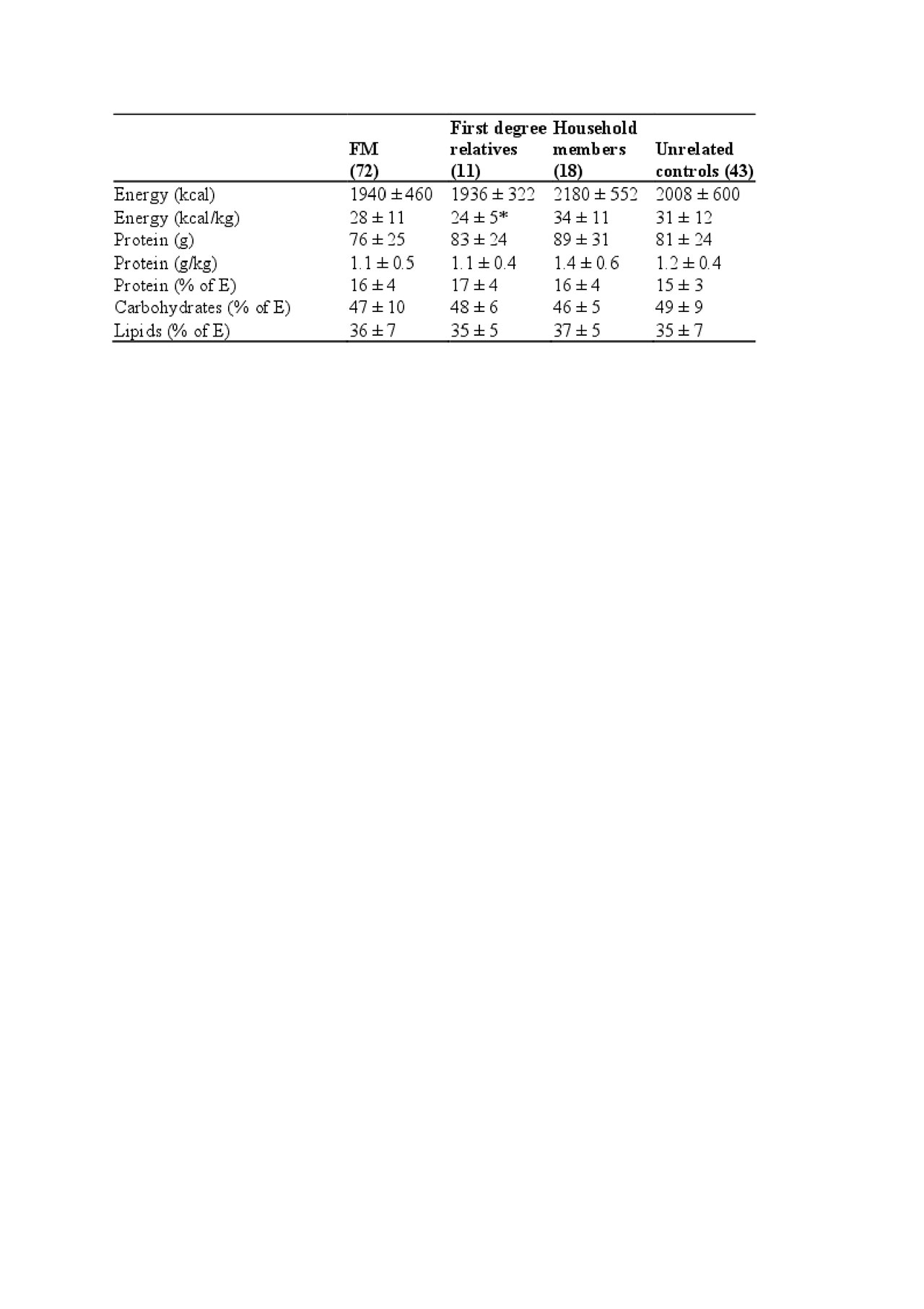Session Information
Date: Sunday, November 10, 2019
Title: 3S075: Fibromyalgia & Other Clinical Pain Syndromes (827–832)
Session Type: ACR Abstract Session
Session Time: 2:30PM-4:00PM
Background/Purpose: We have recently reported significant alterations in gut microbiome compositionin women with fibromyalgia (FM). As gut microbiome is affected by diet, differences in nutritional intake may have accounted for these alterations. Furthermore, there are some reports of selected dietary interventions impacting symptoms of FM. FM patients also frequently try various dietary regimens for symptom relief. The aim of this study was to examine the diet of women with FM compared to healthy controls, and to explore possible associations between the intake of certain nutrients, symptoms severity and gut microbiome composition.
Methods: The study population comprised 77 women with FM (by validated 2016 FM criteria) and 79 controls (household contacts, 1st degree relatives, other controls) Measures included: demographics, comorbidities, polysymptomatic distress scale and quality of life (FIQ). Dietary intake was assessed using the NIH Automated Self-Administered 24-hour recall, following dietician instruction and completion of three-day dietary recall. Datasets with at least two complete days were retained (n=146) and daily nutrient averages were calculated. Under-reporters were excluded from analysis. The Healthy Eating Index (HEI-2015) was calculated to assess diet quality. Intake of micro- and macro-nutrients was correlated with clinical measures of FM using Spearman’s coefficient, and significance was adjusted for multiple comparisons. The gut microbiome was assessed by 16S and whole genome sequencing of stool samples.
Results: There were no differences in demographic and anthropometric characteristics among groups. Significant differences were observed in the abundance of 72 bacterial taxa of the gut microbiome between individuals with FM and controls. Energy and macronutrient intake (total and relative) and overall diet quality score were not different among patients and controls (Table 1). In addition, vitamin, mineral, different fatty acids, alcohol, caffeine, sugar and fiber intakes did not differ among groups; Normalised daily intake of micro- and macro-nutrients showed no significant correlation with demographic and anthropometric measures, disease specific measures, or with the quantities of gut microbiome bacterial taxa differentially abundant in FM.
Conclusion: The gut microbiome of FM patients differed significantly from controls, but without differences in dietary intake. Furthermore macro- and micro-nutrient intake was not correlated with clinical indices of FM, including pain intensity, fatigue, cognitive symptoms and sleep problems. Objective measures of nutrient status, when applicable, would be required to confirm these observations. These data suggest that reported dietary differences between patients and controls are unlikely to explain the differences in gut microbiome or the clinical phenotype of of FM, and add to the emerging body of evidence of a gut-brain axis.
To cite this abstract in AMA style:
minerbi A, Chevalier S, Anjarkouchian A, Moyen A, Shir Y, Fitzcharles M. Dietary Intake Does Not Explain Microbiome Alterations or Symptom Severity in Fibromyalgia [abstract]. Arthritis Rheumatol. 2019; 71 (suppl 10). https://acrabstracts.org/abstract/dietary-intake-does-not-explain-microbiome-alterations-or-symptom-severity-in-fibromyalgia/. Accessed .« Back to 2019 ACR/ARP Annual Meeting
ACR Meeting Abstracts - https://acrabstracts.org/abstract/dietary-intake-does-not-explain-microbiome-alterations-or-symptom-severity-in-fibromyalgia/

